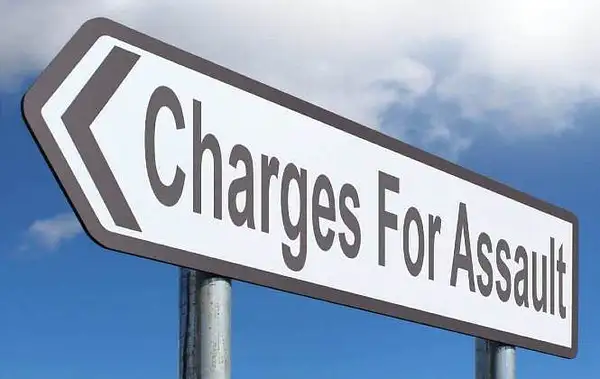
Understanding assault charges in California is vital for anyone who has been charged with such crimes or for those who need to take legal action against someone else. The State of California has dedicated California Penal Code Section 240 to defining assault and outlining its potential penalties. Essentially, the law states that a person has assaulted another when he or she commits an unlawful attempt coupled with present ability to commit a violent injury to another person. Assault is a serious offense in California, so if you find yourself in any situation involving California assault charges, you should hire a lawyer immediately.
There are several different factors that will determine the type of assault a person can be charged with, including their motive for the assault, the severity of the injuries suffered by the alleged victim, and whether a weapon was used.
Simple Assault and Battery Charges in California
While simple assault and battery laws are relatively similar in California, these are two separate crimes, with each bringing its own potential consequences. Understanding the difference between simple assault and battery and felony assault charges in California is essential when understanding the nature of the charges you face.
In the state of California, a party is guilty of simple assault if they swing at another person, even if they miss. For instance, if you are at a bar where you wind up in a verbal altercation with another patron and one of you swings at the other, that individual has committed the crime of simple assault. Under California Penal Code 240, this crime is a misdemeanor and may be punishable by up to six months in county jail and/or a fine of up to $1,000. Such charges may also be accompanied by other misdemeanor charges such as disturbing the peace, which may increase your potential penalties.
The identity of the alleged assault victim also has an impact on what sort of charges are filed against the aggressor. In California, healthcare workers and other public employees are protected against assault by a stricter set of laws than the average California resident.
If the assailant knows that the person they assaulted was a public employee such as a police officer or a healthcare worker, the defendant may be subject to harsher penalties based on the occupation of their victim when they are convicted of assault in California. The penalties for assault on a public worker, for instance, include up to one year in county jail and/or a fine of up to $2,000, while the penalties for knowingly assaulting a police officer include between sixteen months to two or three years of county jail time or state prison time and/or a fine of up to $10,000.
In essence, the difference between an assault and battery charge in California is intent. While simple assault involves an attempt at causing violent injury to another person, simple battery in California involves the actual application of force or violence on that person. It’s important to note, however, that while the use of force is considered simple battery under the California Penal Code, the act does not need to have caused any harm or injury. In any case, even the most minor simple assault or battery charges can bring significant consequences, so it’s always a good idea to treat your misdemeanor charges seriously and consult an experienced criminal defense attorney.
How to File Assault Charges With the Police Department in California
Filing an assault charge with the police department in California is a relatively straightforward process. You can dial 911 or contact your local law enforcement office. They will dispatch an officer to you who will take your statement and the statement of any witnesses who may have seen the attack take place. The officer will then take those statements back to the office, prepare a written police report, and investigate the case against your assailant. As the person who filed the claim, you can request a copy of the police report after it is finished.
If you want to pursue civil litigation against the person who allegedly assaulted you, you will need the services of an attorney. This attorney can review your medical and police records and help represent you when your case is heard by a judge or jury.
